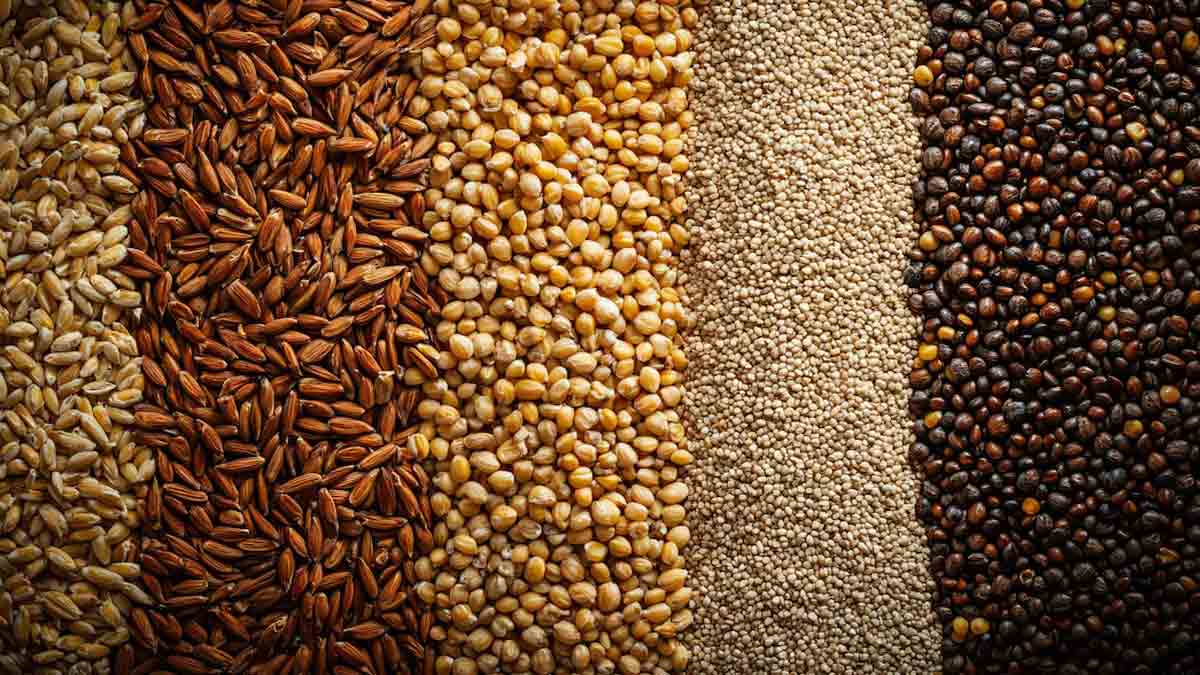
As we become more conscious about what we put on our plates, the appeal of multigrain foods has surged, offering a perfect blend of nutrition and convenience. From busy professionals looking for quick yet wholesome options to health enthusiasts seeking nutrient-dense meals, multigrain products have found their way into kitchens across the globe. Multigrain options not only pack a variety of grains but also provide a richer taste and a boost of essential nutrients. This World Food Day, we reached out to our expert Nadiya Merchant, Associate Director of Nutrition, Kellanova India, who explained this shift towards mindful eating and how multigrain can help nourish our bodies in a wholesome and sustainable way.
Table of Content:-
What Is Multigrain?

"The term multigrain refers to foods that are made from or contain more than one type of grain. These grains can include various seeds of grasses grown for food, such as wheat, oats, rice, barley, rye, corn and more," said Merchant.
According to a 2022 study, multigrain products are made by combining multiple grains, providing a wider range of nutrients compared to single-grain foods. By blending various grains, these products help fill in the nutritional gaps that one type of grain alone might lack. Since some nutrients can be lost during grain processing, using a mix of grains helps retain more benefits, making multigrain foods a healthier and more balanced option.
Multigrain products are often chosen for their diverse nutrient profiles and health benefits. Adding multigrain products to your diet allows you to reap the nutritional, flavour and texture benefits each grain offers. Grains, such as cereals, millets, and pulses, not only provide energy, but they also provide essential nutrients, such as protein, fibre, vitamins and minerals. Health enthusiasts often opt for multigrain products which are made with whole grains, as they offer higher levels of key nutrients compared to refined grains.
Also Read: Multigrain Bread Vs Whole Wheat Bread: Which One Is Healthier?
Benefits Of Multigrain
Powerhouse of Nutrition

"Grains offer several nutritional benefits. Apart from wheat, rice, and oats, which are commonly consumed, millets, such as ragi (finger millet), bajra (pearl millet), and jowar (sorghum) are also being added into a variety of products and offer their own share of health benefits," added Merchant.
While wheat is rich in protein, B vitamins and insoluble dietary fibre content which promotes digestive health, ragi is packed with calcium and iron. Calcium is important for bone health and iron for iron deficiency. Bajra has high nutritional value in energy, dietary fibre, and proteins with a balanced amino acid profile, many essential minerals, some vitamins, and antioxidants. Jowar, high in protein and fibre, helps boost overall energy levels. On the other hand, oats are known for their high soluble fibre beta-glucan content, which helps lower cholesterol, thereby improving heart health.
Return to Roots
“The ‘rediscovery’ of millets has fuelled its incorporation into products. Apart from their nutritive value, what has also fuelled the rise of millets is initiatives, such as the UN's declaration of 2023 as the International Year of Millets. This triggered a renewed interest in the world of ancient grains like ragi, bajra, jowar and others,” highlighted Merchant.
The numerous nutritional and health benefits notwithstanding, the potential and the resilience these grains offer in addressing challenges, such as food security, climate change, and poverty also make them attractive to modern consumers. Interestingly, India is at the forefront of the millet revival movement, setting the stage for a healthier, more resilient, and culturally diverse food future for future generations.
Also Read: Can Whole Grains Protect You From Cognitive Decline? Here's How
Convenience Meets Nutrition and Taste

"Multigrain products strike a delightful balance between convenience, nutrition, and taste. Multigrain foods are readily available in supermarkets, making them convenient for busy lifestyles. With hectic lifestyles, consumers prioritise time-saving solutions by stocking up on foods that are simple to prepare, store, and consume," explained Merchant.
Multigrain lends itself well to this form, which includes snacks, premixes, and ready-to-eat options which provide a quick and nourishing solution for busy individuals who do not want to spend too much time on meal preparation. This convenience factor often leads to innovative multigrain products, such as ready-to-eat multigrain cereals with fruits, nuts and seeds; multigrain snacks with nuts, etc creating blends which are not only nourishing and flavourful but also tasty.
Bottomline
Merchant concluded, "Since the demand for healthy, convenient options is only growing, we can expect to see a continued rise in innovative multigrain products. Whether as a quick snack, a nutritious breakfast, or a wholesome meal, multigrain options will continue to be a global favourite in a health-conscious world."
[Disclaimer: This article contains information provided by an expert and is for informational purposes only. Hence, we advise you to consult your own professional if you are dealing with any health issues to avoid complications.]
Also watch this video
How we keep this article up to date:
We work with experts and keep a close eye on the latest in health and wellness. Whenever there is a new research or helpful information, we update our articles with accurate and useful advice.
Current Version